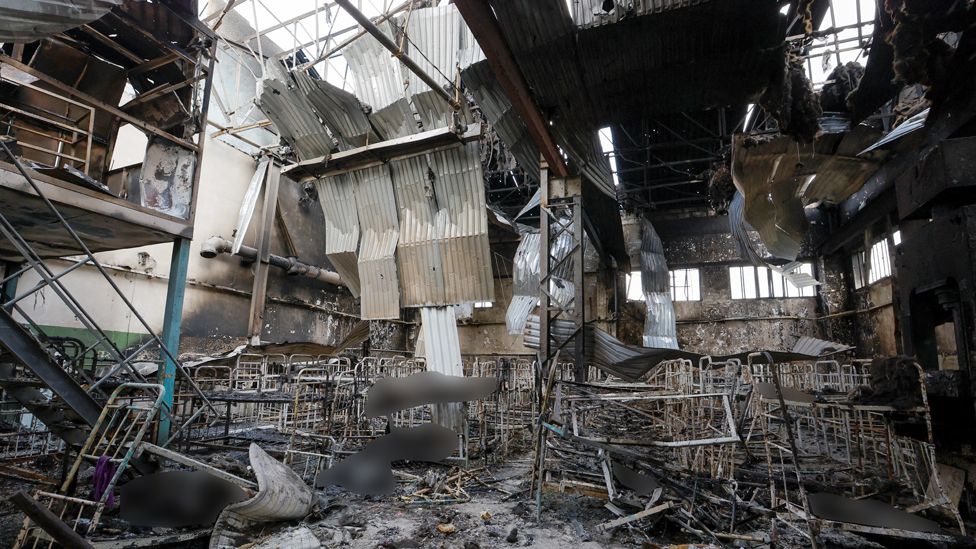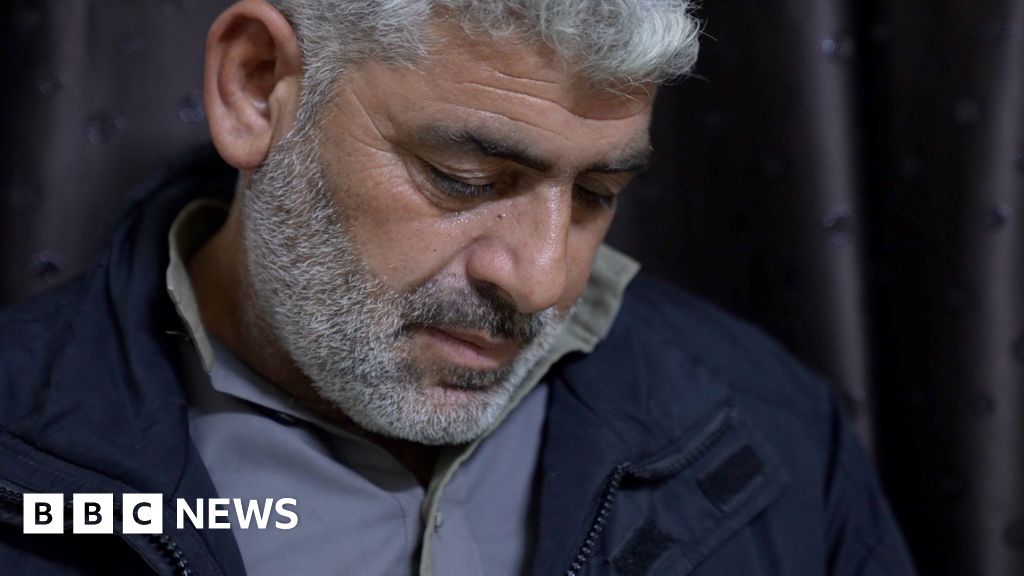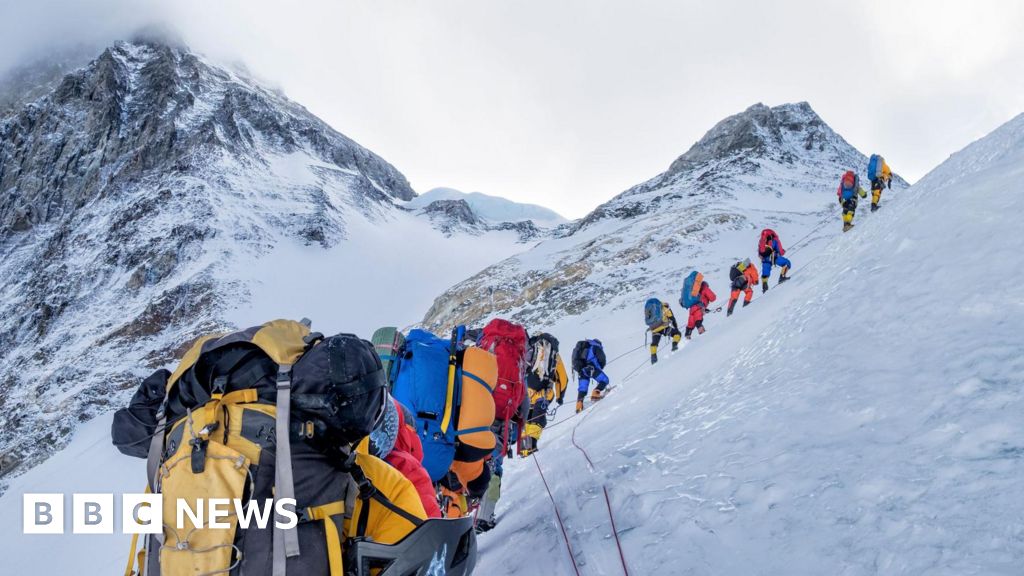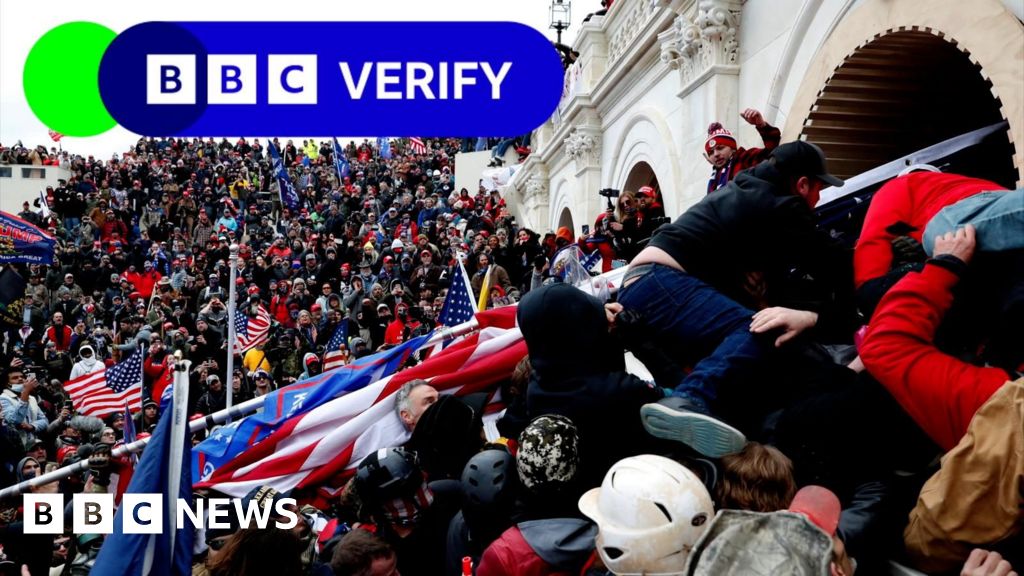ARTICLE AD BOX
By Matt Murphy & Alys Davies
BBC News
 Image source, REUTERS/Alexander Ermochenko
Image source, REUTERS/Alexander Ermochenko
The BBC has blurred some of this photograph showing the building after it was attacked
Ukraine has called for the United Nations and the Red Cross to be allowed to investigate the deaths of dozens of Ukrainian prisoners of war (POWs) in an attack in occupied territory.
The Red Cross said it is seeking access to the prison in order to help with evacuating and treating the wounded.
Ukraine and Russia have accused each other of attacking the camp.
Unverified Russian video footage of the aftermath shows a tangle of wrecked bunk beds and badly charred bodies.
Exactly what happened at the prison camp in Olenivka, which is controlled by the Russian-backed separatist Donetsk People's Republic, remains unclear.
Ukraine says the site was targeted by Russia in an effort to destroy evidence of torture and killing. President Volodymyr Zelensky said more than 50 people had been killed in what he described as a "deliberate Russian war crime."
For its part, Russia said the camp was hit by Ukrainian precision rockets and that 40 prisoners had been killed.
Those detained at the prison are said to have included members of the Azov battalion, who were captured defending the southern city of Mariupol in May and whom Russia has sought to depict as neo-Nazis and war criminals.
Warning: You may find details below disturbing
Daniil Bezsonov, a spokesman for the so-called Donetsk People's Republic, said the strike had been a "direct hit on a barracks holding prisoners".
Russia's defence ministry said the strike had been carried out with US-made Himars artillery and it accused Ukraine of a "deliberately perpetrated" provocation. The ministry produced fragments of what it said were rockets fired by the Himars system.
But Ukraine denied that any rocket or artillery strikes had been made.
An adviser to President Zelensky said the scene looked like arson, and that a missile strike would have scattered the bodies.
Ukraine's general staff of the armed forces called on the UN and the Red Cross to investigate the deaths, claiming that Russia had targeted the camp in order to cover up its treatment of POWs.
Writing on social media, it said the they should immediately respond as the two organisations had given guarantees that the prisoners of war would be kept safe there.
The Red Cross said it was seeking access to the site and had offered to help evacuate the wounded.
"Our priority right now is making sure that the wounded receive life-saving treatment and that the bodies of those who lost their lives are dealt with in a dignified manner," it said in a statement.
Ukraine's new Prosecutor-General Andriy Kostin earlier said he had opened a war crimes investigation into the blast.
A war crime but who was behind it?
The scene inside the "filtration camp" near Olenivka is hellish.
Rays of sunlight shining through jagged holes in the corrugated iron roof reveal a tangle of metal bunk beds and an unknown number charred bodies, some of them still lying where, presumably, they had been sleeping.
Outside, there is blood on a wooden pallet and more bodies, not burned, but bloodied. They look emaciated.
With independent journalists not able to access the site, there's little anyone can do at the moment to verify the competing claims. Ukraine says it has a mountain of evidence, including an intercepted radio conversation between Russian-backed separatists, in which they talk about a series of explosions deliberately engineered by the rebels themselves. Other Ukrainian sources blame mercenaries from Russia's Wagner group.
Only a thorough investigation by impartial experts can possibly establish the truth. Whether such experts will ever be allowed access to this appalling scene is doubtful.
Footage of the destruction within a hangar-like dormitory filled with burned or destroyed bunk beds appeared online on Friday morning. The footage came from Russian state TV channel Russia 1. It then cuts to footage of destruction and bloodshed outside the building.
The BBC cannot verify whether the interior and exterior shots are at the same location.
The BBC's Reality Check team have, however, confirmed that the shots of the outside of the building match Prison No. 120, near Olenivka.
The prison was empty before February 2022, and has been used exclusively for POWs and civilians who didn't pass Russian filtration - a system where people are interrogated before it is decided where they will be sent.
Andriy Biletskyi, a founder of the nationalist Azov Battalion, said a number of the unit's soldiers were among those killed.
It has been established that a number of Ukrainian troops who surrendered to Russian forces after a protracted siege at the Azovstal steel plant in Mariupol were taken to Olenivka.
The troops had held out against a relentless Russian assault on the sprawling site for weeks and surrendered in May after using the plant's maze of tunnels to shelter from artillery and air strikes.
Ukrainian officials have said that POWs at Olenivka were tortured.
There was further outrage in Ukraine on Friday at a shocking video circulating online that showed a prisoner of war being castrated in another area of Russian-occupied Donbas.
The Russian soldier filmed carrying out the attack in the town of Severodonetsk was identified as a member of a unit belonging to Chechen leader Ramzan Kadyrov.
Residents from a Kyiv apartment block damaged by a Russian rocket are trying to rebuild their homes

 2 years ago
17
2 years ago
17








 English (US) ·
English (US) ·